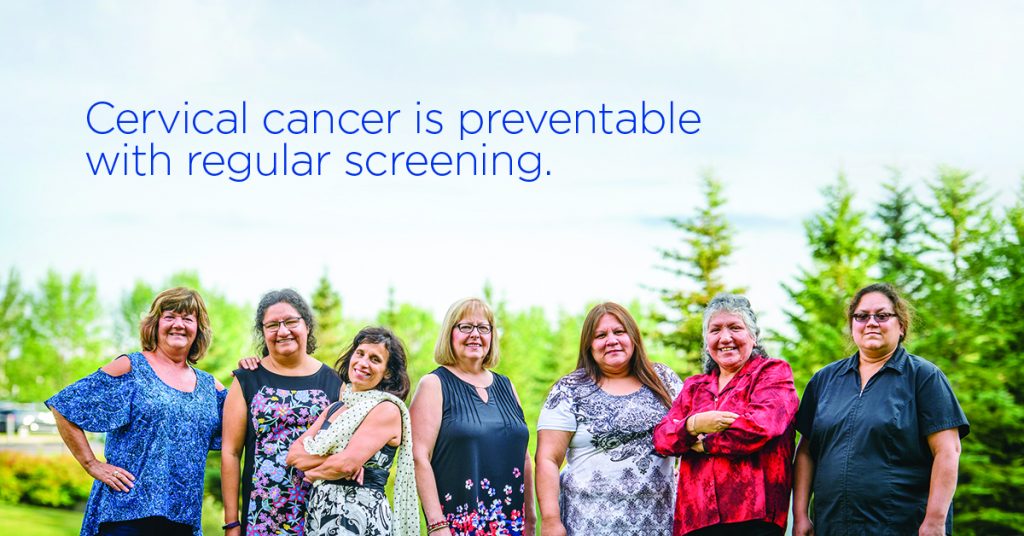Staying Up-To-Date with Screening Can Reduce the Risk of Cervical Cancer
by Sara Chow
 Women are encouraged to get screened every three years until age 70
Women are encouraged to get screened every three years until age 70October 16 to 20 is National Cervical Cancer Awareness Week, and Thunder Bay Regional Health Sciences Centre, in partnership with Cancer Care Ontario, is encouraging women to stay up-to-date with regular Pap tests. It is estimated that in 2017, about 710 women in Ontario will be diagnosed with cervical cancer and about 150 women will die from the disease.
“In our region, only 59 percent of women have been screened for cervical cancer,” said Dr. Naana Jumah, Regional Cervical Screening/Colposcopy Lead for the Northwest region. “Regular screening is important because it can find changes in the cervix before it turns into cancer. Cervical cancer is almost entirely preventable with regular cancer screening.”
The Ontario Cervical Screening Program (OCSP) recommends that women between the ages of 21 and 70 should get screened for cervical cancer every three years if they are or have ever been sexually active. Screening is the best way to find the early cell changes that might lead to cervical cancer without exhibiting any symptoms.
“Most cervical cancers are found in women who have never been screened or have been screened less often than recommended by Ontario’s cervical screening guidelines. This is why screening is so important,” said Dr. Joan Murphy, Clinical Lead, OCSP, Cancer Care Ontario. “We see screening participation start to decline after age 50 even though the risk of cervical cancer remains, so women should continue to get screened until at least age 70.”
Cervical cancer can affect anyone with a cervix who has ever been sexually active. It is recommended that women ages 21 to 70 have regular Pap tests, even if they:
•Feel healthy and have no symptoms;
•Are no longer sexually active;
•Have only had one partner;
•Are in a same-sex relationship;
•Have been through menopause;
•Have no family history of cervical cancer; and/or
•Have received the HPV vaccine.
HPV infections are common, and up to 80 percent of sexually active men and women will have an HPV infection in their lifetime. HPV is passed from one person to another through intimate (i.e., skin to skin) sexual contact. While there are many types of the virus, only specific strains of HPV put a woman at risk for cervical cancer. HPV infections can result in an abnormal Pap test and infections commonly go away without causing any harm, but when an infection persists it can lead to cervical cancer, even among women in their 50s and 60s. Regular screening every three years can detect abnormal cells, which when treated, can prevent cancer from developing.
Women ages 21 to 70 are encouraged to speak with their health care providers about getting screened for cervical cancer. For more information, visit www.tbrhsc.net/cancerscreening. To learn your risk of developing cervical cancer and how to decrease your risks, visit www.mycanceriq.ca.To learn more about HPV immunization in Ontario visit: http://www.health.gov.on.ca/en/ms/hpv/.